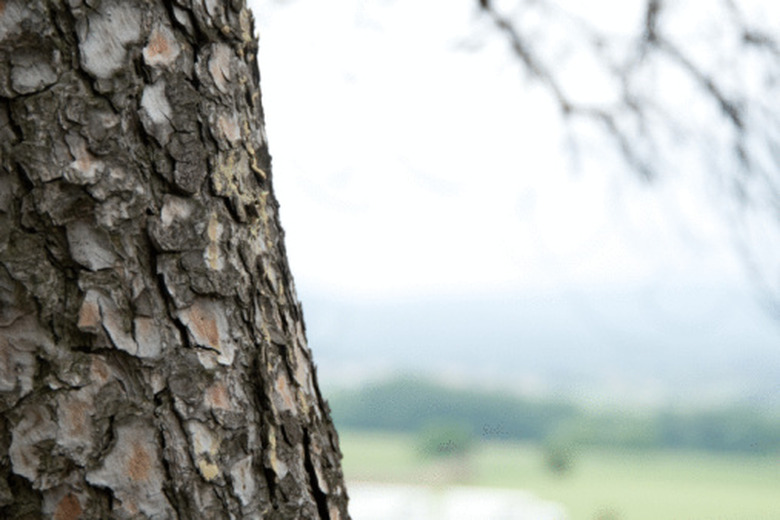What Is This Sticky Goo On The Evergreen Tree?
A sticky substance found on the bark or limbs of an evergreen tree is tree sap. Generally found inside of the tree, sap serves many purposes for keeping a tree healthy. Sap on the outside of a tree indicates a problem.
Contents
Sap is made up nutrients, sugar, minerals, hormones and water.
Injury
Since sap generally moves throughout the inside of the tree, sap coated on the outside of a pine tree is indicative of injury or disease. Excess sap production is a symptom of common pine tree diseases such as canker disease, according to the North Dakota State University Extension. Insects that bore through the wood and bark of the tree also contribute to excess sap production.
- A sticky substance found on the bark or limbs of an evergreen tree is tree sap.
- Since sap generally moves throughout the inside of the tree, sap coated on the outside of a pine tree is indicative of injury or disease.
Purposes
Sap serves many purposes for the evergreens that produce it. Sap helps move plant food produced in the leaves throughout the trunk and branches of the tree. It also serves as a natural defense element for the pine tree. Sap acts as a natural bandage, plugging up holes made by boring insects or disease, preventing further widespread problems for the tree.
Season
Sap generally flows through a tree during the tree's growing season. Sap production slows or stops when temperatures remain below the freezing mark.
Problems
Sap can be difficult to remove from clothing, skin and pets, making it a problem in some areas. Contact the local agricultural extension office for a diagnosis for trees producing excess. Sap can be removed using a tool de-greasing product, tea tree oil or nail polish remover. Place clothing with sap deposits in the freezer until the sap is frozen and chip it off.
- Sap serves many purposes for the evergreens that produce it.
- Sap acts as a natural bandage, plugging up holes made by boring insects or disease, preventing further widespread problems for the tree.
